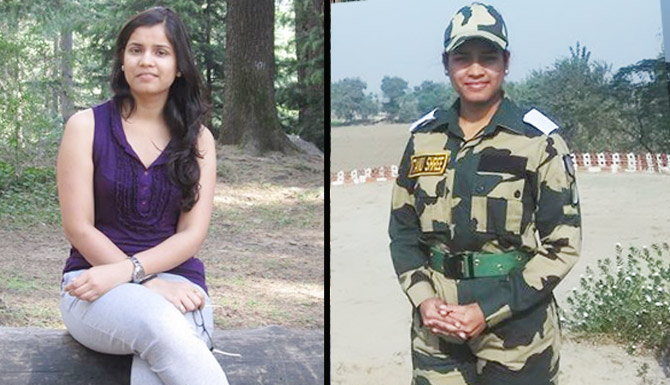Indian politics has revolved around traditional methods or business model of rallies, and door to door canvassing during elections since Independence- supplementing it with distribution of pamphlets, flyers, badges and banners. During off election period also, medium of interaction with general population and other political/ administrative elements has been personal meetings and use of telephones. Daily or weekly “Janta Darbars” are still not uncommon. The political architecture commenced graduating to electronic mediums like TV and Radio, to establish connect with voters and the world in mid- 80s. Though advertisements and spread of information through print media like newspapers and party’s own publications wasn’t unheard of, its use as a potent tool for political gains picked up pace around the same time.
While all such medium of connecting with public, own cadre and other establishments by political class can fall in the definition of social media, the real impact of social media has been felt by use of internet based media like Facebook, WhatsApp, Instagram, Twitter and Snapchat and other such contemporary platforms. The telecom revolution of 90s followed by rapid spread of internet and ever increasing reach of smartphones coupled with changing demography has impacted Indian politics like never before. As per latest estimates 65% of Indians are below the age of 35 years and constitute nearly 80% of 250.8 million users of social networking sites. The target audience for political class therefore is so easily and freely approachable, that one wonders as to why they didn’t exploit this medium before the 2014 elections. This aspect is further strengthened by the fact that the average age profile of political leaders has also gone down considerably, the ones who are IT- savvy unlike leaders of yore.
So how different is this social medium from the ones previously used by politicians? What additional value does it bring to the table when exploited by political class, or does it negatively impact the working and /or fortunes? If one actually analyses the results of some recently held elections and the way the Government has started functioning, it would be apparent that the social media has actually transformed Indian politics. Let us see how:
Perception Management
Nowadays all political parties have greatly invested in media cells filled with IT, management and media professionals who carry out in- depth research based on social media platforms and respond to the environment in almost real time as part of strategy of perception management. Almost 15-20 % of election budget is being spent on social media as it is the fastest and cheapest means of obtaining feedback and responses. Official Twitter handles and Facebook pages are manned 24×7 and general public has become an equal contributor in shaping the thought process of political parties before, during and after elections. Image building strategies for own leaders, policies and achievements as well as measures to destroy the same of opponents are being implemented with great success and speed by use of social media.
Mass Mobilization
Social media reach is unimaginable and the speed of spread of information is phenomenal. Unlike previous times it is possible to mobilize masses for or against a Government / political party / a cause, with amazing alacrity. Who can forget the great “Arab Uprising” of 2010? Use of social media can actually bring down a Government now, which was unthinkable earlier. Further it is also being used to spread hatred and propaganda by radical elements in political class which has at times resulted in violence and polarization of public.
Education of Environment
Political parties as well as statutory bodies like Election Commission are increasingly using social media platforms to bring about awareness to general public and inform them about their rights and duties as voter or otherwise. Statistics showing increasing trend in votes cast in the elections is proof of increased awareness and level of motivation achieved due to use of social media platforms.
Increased Accountability
Reach of social media provides an excellent platform for higher levels of vigilance and opportunity to whistle-blowers maintaining the anonymity with a wide audience base including the ones who are party to the issue. Hence the pressure to perform on political class and administrative machinery has increased bringing improved performance and increased accountability. Large no of scam unearthed / exposed and sting operations performed / delivered to general public in fastest manner has brought in lot more transparency.
Better Approachability
Platforms like Twitter and Facebook have made the ‘rulers’ much more approachable to the ‘ones under rule’. Bringing to their notice any public or personal issue is so easy today that one needs to just message the minister or establishment and a prompt reply / action is almost guaranteed. Number of recent examples relate to prompt action (for example actions taken by politicians like Sushma Swaraj and Suresh Prabhu), who have come forward to assist common citizens in times of their crisis just based on messages on their social media platform.
Reduction in Election Expenditure
While relevance of face to face interaction and public speeches remains crucial, more and more resources are being invested in social media platforms by political parties for extended reach to target audience. As mentioned earlier majority of voters especially young first time voters are the primary users of social sites and not inclined to wait for endless hours for leaders to arrive for a public rally or inauguration of a project. They are more accessible through the medium of social sites which is much less costly hence bringing down the electoral expenditure by political parties. Use of processions / marches/ banners/ pamphlets/ loudspeakers have gone down drastically reducing the administrative budgets.
Today social media has brought in a revolution through which an average citizen has been empowered to bring about change in political landscape through participative dialogue. True democratization of political and administrative processes has been achieved bringing to the fore importance of communication rather than the originator.






























